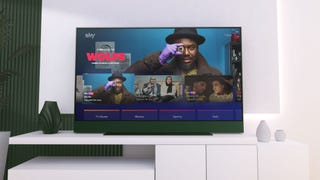When you're a neurodivergent person, your representation on screen is often not explicit.
Rather than being based in canon, you instead see yourself via characters who are coded as autistic, ADHD, dyspraxic, or otherwise neurodivergent. Most of the time, it's easy to spot for those of us with the same experiences, but is rarely confirmed by producers and writers.
It is bittersweet, therefore, to be an autistic person watching Netflix's Wednesday, seeing the reactions to her on social media and beyond.
Wednesday has many autistic traits within the eight-episode Netflix show. Particularly in her speech we see bluntness and monotony, and it is also clear that she doesn't always understand the emotions others express or process them the way others do.
When she at one point says, "It's not my fault I can't interpret your emotional morse code," it describes almost exactly what many autistic people feel daily around non-autistic peers.
Related: Netflix confirms Wednesday has beaten big Stranger Things viewer record
Such traits are consistently obvious and build on each other throughout the show, her strong sense of justice being prevalent alongside her continually showing difference in communication and a general lack of care for social norms, such as when she tells a peer, "I regret not showing my gratitude towards you more appropriately".
But much like in many other popular shows, any idea of her being autistic is not something made official. And whilst being able to see yourself in a character can make you feel like you belong or like you aren't alone, that lack of confirmation can be more damaging than many would imagine.
Some have said that she isn't autistic, rather is just rude and insensitive. While some of her actions certainly could be described that way, others are more like a subversion of social norms (and it would be incorrect to say that autistic and neurodivergent people are never rude or insensitive themselves).
Many have argued that Wednesday is just the same as any other product of Tim Burton – an outcast, quirky and often shrouded in darkness. But does that mean she can't be autistic?
Whether Wednesday is truly intended to be autistic or not, social media celebrates and embraces those traits in her that are usually seen as deficits or oddities when found in autistic individuals in real life. TikTok has been flooded with videos mimicking her lack of blinking and her bluntness, as well as imitations of her dancing that many of us see as a product of sensory-seeking behaviours.
She also shows sensory hypersensitivity with Thing, where she talks about her "highly trained olfactory sense" picking up the "faint whiff of neroli and bergamot". For those of us with sensory needs, this is highly relatable.
In part, this coding could be seen as a positive thing – exposure of more people to autistic traits could mean they eventually become more accepting of those they see in real life who exhibit the same characteristics, as well as autistic people themselves getting to relate to someone in mainstream media.
But instead, while loving this character and wanting to be more like her, much of the same society shuns those of us who show up similarly in real life. This is some of the potential damage of autistic and neurodivergent coding: there is no need for anyone to look inwardly at whether they are displaying these double standards, because they don't even know this is a possibility.
There are multiple reasons why Wednesday might be embraced compared to those with traits similar to hers. She is conventionally attractive, bringing in the element of pretty privilege that can mean it's simply seen as quirky and fun rather than weird.
Additionally, the fictionality provides a sense of distance where individuals can ignore how they react to the behaviours when they are in front of those they meet in real life. Our interaction with entertainment is not placed on the same level as that with reality, seen as something separate instead of naturally intertwined with or simulating real life.
This means there is a significant dichotomy between Wednesday and neurodivergent individuals. In anyone else, much of her behaviour would not be palatable, meaning we see an issue of acceptability when it comes to characters like this.
In reality, many of these traits are the stem of why many autistic people face bullying, stigma and disproportionately end up in the justice or psychiatric systems. Many struggle to find employment because they don't uphold the social norms others do.
It is also key to understand that where there is unconfirmed representation and neurodivergent coding, it is more likely that marginalised individuals will not receive a diagnosis as autistic or otherwise neurodivergent.
This phenomenon in film and television is arguably a contributor to stigma and lack of knowledge and understanding around neurodivergence particularly in girls and marginalised people, where such traits are put down to quirkiness, or part of an ill-defined otherness. It leaves many not knowing who they truly are and without support.
Autistic and otherwise neurodivergent people deserve proper representation, confirmed and acted by those with lived experience. The nature of autistic coding means we are still further away from this than we should be, and it means wider acceptance is a long way off.
When it comes to Wednesday, the point is not really about whether she is actually autistic.
Instead, it is about the parallels to the lives of so many and the contrast in treatment when it comes to the same traits.
So, while you are raving about Wednesday, perhaps take a moment to consider how you react to those traits if they were in front of you. Are you accepting neurodivergence off the screen, too?
Wednesday is available on Netflix.































